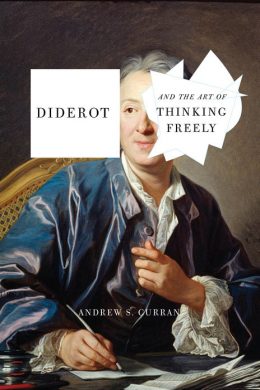Curran’s Diderot Biography Touches on Affairs, Tormented Relationships, Social Beliefs

 Andrew Curran, the William Armstrong Professor of the Humanities, is the author of Diderot and the Art of Thinking Freely, published by Other Press on Jan. 15.
Andrew Curran, the William Armstrong Professor of the Humanities, is the author of Diderot and the Art of Thinking Freely, published by Other Press on Jan. 15.
According to the publisher:
“Denis Diderot is often associated with the decades-long battle to bring the world’s first comprehensive Encyclopédie into existence. But his most daring writing took place in the shadows. Thrown into prison for his atheism in 1749, Diderot decided to reserve his best books for posterity—for us, in fact. In the astonishing cache of unpublished writings left behind after his death, Diderot challenged virtually all of his century’s accepted truths, from the sanctity of monarchy, to the racial justification of the slave trade, to the norms of human sexuality. One of Diderot’s most attentive readers during his lifetime was Catherine the Great, who not only supported him financially but invited him to St. Petersburg to talk about the possibility of democratizing the Russian empire.”
Organizing the biography by theme, “Curran vividly describes Diderot’s tormented relationship with Rousseau, his curious correspondence with Voltaire, his passionate affairs, and his often iconoclastic stands on art, theater, morality, politics, and religion. But what this book brings out most brilliantly is how the writer’s personal turmoil was an essential part of his genius and his ability to flout taboos, dogma, and convention.”

Curran is a fellow in the history of medicine at the New York Academy of Medicine and a Chevalier dans l’Ordre des Palmes Académiques. At Wesleyan, he also is professor of French and chair of Romance Languages and Literatures. This spring, he’s teaching French Composition and Conversation.
Curran also is the author of two previous books, Sublime Disorder: Physical Monstrosity in Diderot’s Universe and The Anatomy of Blackness: Science and Slavery in an Age of Enlightenment.
Curran’s book was featured in The New York Times’s New & Noteworthy section on Jan. 15. Read a review on the book in Kirkus.

